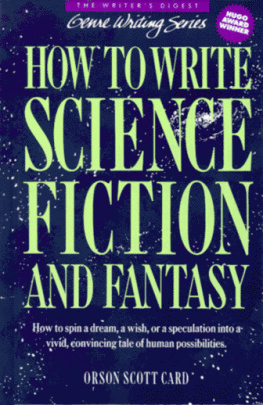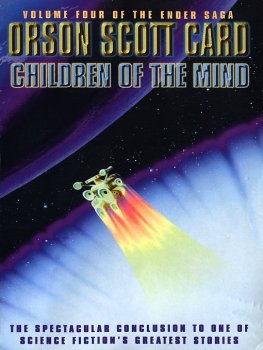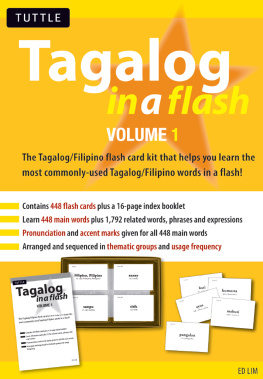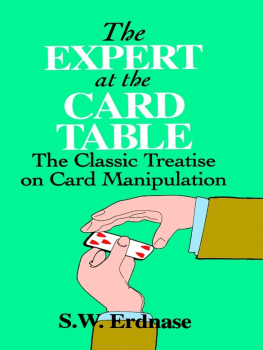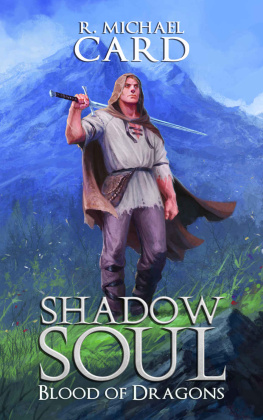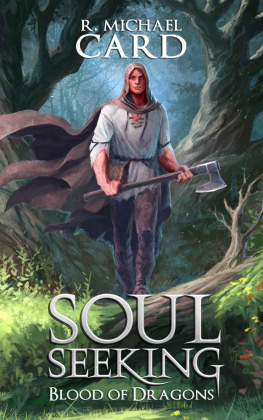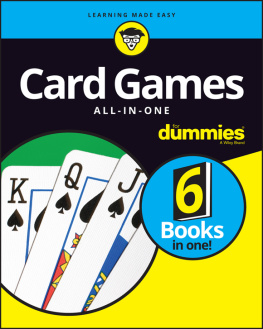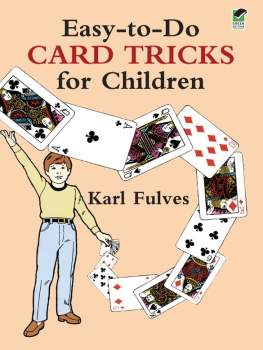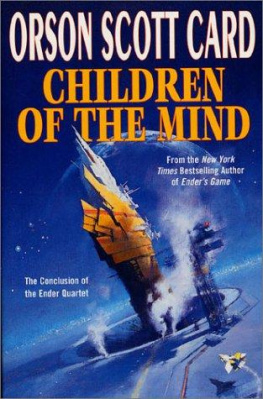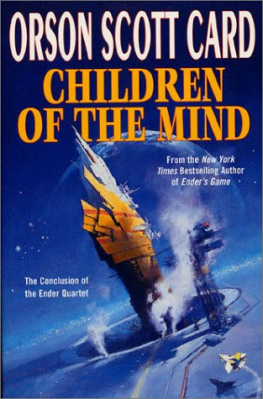Card - Children of the Mind
Here you can read online Card - Children of the Mind full text of the book (entire story) in english for free. Download pdf and epub, get meaning, cover and reviews about this ebook. genre: Art. Description of the work, (preface) as well as reviews are available. Best literature library LitArk.com created for fans of good reading and offers a wide selection of genres:
Romance novel
Science fiction
Adventure
Detective
Science
History
Home and family
Prose
Art
Politics
Computer
Non-fiction
Religion
Business
Children
Humor
Choose a favorite category and find really read worthwhile books. Enjoy immersion in the world of imagination, feel the emotions of the characters or learn something new for yourself, make an fascinating discovery.

Children of the Mind: summary, description and annotation
We offer to read an annotation, description, summary or preface (depends on what the author of the book "Children of the Mind" wrote himself). If you haven't found the necessary information about the book — write in the comments, we will try to find it.
Children of the Mind — read online for free the complete book (whole text) full work
Below is the text of the book, divided by pages. System saving the place of the last page read, allows you to conveniently read the book "Children of the Mind" online for free, without having to search again every time where you left off. Put a bookmark, and you can go to the page where you finished reading at any time.
Font size:
Interval:
Bookmark:
CHILDREN OF THE MIND
by Orson Scott Card
(c) 1996 Orson Scott Card
Chapter 1 -- "I'M NOTMYSELF"
"Mother. Father. Did I doit right?"
-- The last words of HanQing-jao, from The God Whispers of Han Qing-jao
Si Wang-mu stepped forward.The young man named Peter took her hand and led her into the starship. The doorclosed behind them.
Wang-mu sat down on one of theswiveling chairs inside the small metal-walled room. She looked around,expecting to see something strange and new. Except for the metal walls, itcould have been any office on the world of Path. Clean, but not fastidiouslyso. Furnished, in a utilitarian way. She had seen holos of ships in flight: thesmoothly streamlined fighters and shuttles that dipped into and out of theatmosphere; the vast rounded structures of the starships that accelerated asnear to the speed of light as matter could get. On the one hand, the sharppower of a needle; on the other, the massive power of a sledgehammer. But herein this room, no power at all. Just a room.
Where was the pilot? Theremust be a pilot, for the young man who sat across the room from her, murmuringto his computer, could hardly be controlling a starship capable of the feat oftraveling faster than light.
And yet that must have beenprecisely what he was doing, for there were no other doors that might lead toother rooms. The starship had looked small from the outside; this roomobviously used all the space that it contained. There in the corner were thebatteries that stored energy from the solar collectors on the top of the ship.In that chest, which seemed to be insulated like a refrigerator, there might befood and drink. So much for life support. Where was the romance in starflightnow, if this was all it took? A mere room.
With nothing else to watch,she watched the young man at the computer terminal. Peter Wiggin, he said hisname was. The name of the ancient Hegemon, the one who first united all thehuman race under his control, back when people lived on only one world, all thenations and races and religions and philosophies crushed together elbow toelbow, with nowhere to go but into each other's lands, for the sky was aceiling then, and space was a vast chasm that could not be bridged. PeterWiggin, the man who ruled the human race. This was not him, of course, and hehad admitted as much. Andrew Wiggin sent him; Wang-mu remembered, from thingsthat Master Han had told her, that Andrew Wiggin had somehow made him. Did thismake the great Speaker of the Dead Peter's father? Or was he somehow Ender'sbrother, not just named for but actually embodying the Hegemon who had diedthree thousand years before?
Peter stopped murmuring,leaned back in his chair, and sighed. He rubbed his eyes, then stretched andgroaned. It was a very indelicate thing to do in company. The sort of thing onemight expect from a coarse fieldworker.
He seemed to sense herdisapproval. Or perhaps he had forgotten her and now suddenly remembered thathe had company. Without straightening himself in his chair, he turned his headand looked at her.
"Sorry," he said."I forgot I was not alone."
Wang-mu longed to speak boldlyto him, despite a lifetime retreating from bold speech. After all, he hadspoken to her with offensive boldness, when his starship appeared like afresh-sprouted mushroom on the lawn by the river and he emerged with a single vialof a disease that would cure her home world, Path, of its genetic illness. Hehad looked her in the eye not fifteen minutes ago and said, "Come with meand you'll be part of changing history. Making history." And despite herfear, she had said yes.
Had said yes, and now sat in aswivel chair watching him behave crudely, stretching like a tiger in front ofher. Was that his beast-of-the-heart, the tiger? Wang-mu had read the Hegemon.She could believe that there was a tiger in that great and terrible man. Butthis one? This boy? Older than Wang-mu, but she was not too young to knowimmaturity when she saw it. He was going to change the course of history! Cleanout the corruption in the Congress. Stop the Lusitania Fleet. Make all colonyplanets equal members of the Hundred Worlds. This boy who stretched like ajungle cat.
"I don't have yourapproval," he said. He sounded annoyed and amused, both at once. But thenshe might not be good at understanding the inflections of one such as this.Certainly it was hard to read the grimaces of such a round-eyed man. Both hisface and his voice contained hidden languages that she could not understand.
"You mustunderstand," he said. "I'm not myself."
Wang-mu spoke the commonlanguage well enough at least to understand the idiom. "You are unwelltoday?" But she knew even as she said it that he had not meant theexpression idiomatically at all.
"I'm not myself," hesaid again. "I'm not really Peter Wiggin."
"I hope not," saidWang-mu. "I read about his funeral in school."
"I do look like him,though, don't I?" He brought up a hologram into the air over his computerterminal. The hologram rotated to look at Wang-mu; Peter sat up and assumed thesame pose, facing her.
"There is aresemblance," she said.
"Of course, I'myounger," said Peter. "Because Ender didn't see me again after heleft Earth when he was-- what, five years old? A little runt, anyway. I wasstill a boy. That's what he remembered, when he conjured me out of thinair."
"Not air at all,"she said. "Out of nothing."
"Not nothing,either," he said. "Conjured me, all the same." He smiledwickedly. "I can call spirits from the vasty deep."
These words meant something tohim, but not to her. In the world of Path she had been expected to be a servantand so was educated very little. Later, in the house of Han Fei-tzu, herabilities had been recognized, first by her former mistress, Han Qing-jao, andlater by the master himself. From both she had acquired some bits of education,in a haphazard way. What teaching there had been was mostly technical, and theliterature she learned was of the Middle Kingdom, or of Path itself. She couldhave quoted endlessly from the great poet Li Qing-jao, for whom her one-timemistress had been named. But of the poet he was quoting, she knew nothing.
"I can call spirits fromthe vasty deep," he said again. And then, changing his voice and manner alittle, he answered himself. "Why so can I, or so can any man. But willthey come when you do call for them?"
"Shakespeare?" sheguessed.
He grinned at her. She thoughtof the way a cat smiles at the creature it is toying with. "That's alwaysthe best guess when a European is doing the quoting," he said.
"The quotation isfunny," she said. "A man brags that he can summon the dead. But theother man says that the trick is not calling, but rather getting them tocome."
He laughed. "What a wayyou have with humor."
"This quotation meanssomething to you, because Ender called you forth from the dead."
He looked startled. "Howdid you know?"
She felt a thrill of fear. Wasit possible? "I did not know, I was making a joke."
"Well, it's not true. Notliterally. He didn't raise the dead. Though he no doubt thinks he could, if theneed arose." Peter sighed. "I'm being nasty. The words just come tomy mind. I don't mean them. They just come."
"It is possible to havewords come to your mind, and still refrain from speaking them aloud."
He rolled his eyes. "Iwasn't trained for servility, the way you were."
So this was the attitude ofone who came from a world of free people-- to sneer at one who had been aservant through no fault of her own. "I was trained to keep unpleasantwords to myself as a matter of courtesy," she said. "But perhaps toyou, that is just another form of servility."
"As I said, Royal Motherof the West, nastiness comes unbidden to my mouth."
"I am not the RoyalMother," said Wang-mu. "The name was a cruel joke--"
Next pageFont size:
Interval:
Bookmark:
Similar books «Children of the Mind»
Look at similar books to Children of the Mind. We have selected literature similar in name and meaning in the hope of providing readers with more options to find new, interesting, not yet read works.
Discussion, reviews of the book Children of the Mind and just readers' own opinions. Leave your comments, write what you think about the work, its meaning or the main characters. Specify what exactly you liked and what you didn't like, and why you think so.

